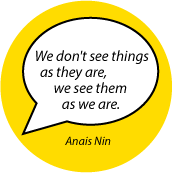I under stood
God’s might
And might not
And in awe probability
New
That I
Will only
Fooly see
Phase to phase
Until awe of creation
Come prized my parish
This poem is about dying to see the face of God. This takes two forms: dying when unable to see the face of God and dying if a mere mortal human were to see the face of God. The first form is the traditional form preached about and at others to point out their deficiencies and need for God. I find this form fraught with peril as pedantic and fixated on the lack of God’s presence, the very thing it seeks to dispel! As if God could successfully hide; fortunately, on this account, God is a total loser. God bursts forth from creation, if not well reflected in humans, then from nature. Still, God is a total loser because God cannot reveal God’s full face to humans without literally blowing out our mind and being as humans. There is a protective veil necessary to preserve and maintain human existence. I am far more intrigued with this second form of dying to see the face of God, the Oneness of awe, worthy of my worship. My deep faith is roughly matched with deep skepticism for authority. I want peace and reconciliation in this matter — perhaps even to the point of my matter exploding.
The Judaeo-Christian tradition of dying if one were to see the face of God originates in Exodus 12-23, when Moses is on Mount Sinai receiving the ten commandments from “I am,” the name God chose to reveal to Moses. This is how the conversation is retold (NIV translation):
Moses said to the Lord, “You have been telling me, ‘Lead these people,’ but you have not let me know whom you will send with me. You have said, ‘I know you by name and you have found favor with me.’ If you are pleased with me, teach me your ways so I may know you and continue to find favor with you. Remember that this nation is your people.”
The Lord replied, “My Presence will go with you, and I will give you rest.”
Then Moses said to him, “If your Presence does not go with us, do not send us up from here. How will anyone know that you are pleased with me and with your people unless you go with us? What else will distinguish me and your people from all the other people on the face of the earth?”
And the Lord said to Moses, “I will do the very thing you have asked, because I am pleased with you and I know you by name.”
Then Moses said, “Now show me your glory.”
And the Lord said, “I will cause all my goodness to pass in front of you, and I will proclaim my name, the Lord, in your presence. I will have mercy on whom I will have mercy, and I will have compassion on whom I will have compassion. But,” he said, “you cannot see my face, for no one may see me and live.”
Then the Lord said, “There is a place near me where you may stand on a rock. When my glory passes by, I will put you in a cleft in the rock and cover you with my hand until I have passed by. Then I will remove my hand and you will see my back; but my face must not be seen.”
In a conversation with one of my former pastors related to seeing the backside of God, I noted that this made perfect sense, that is, a carpenter son would have a plumber for a father. His irrepressible grin and laugh reflected the joy that is the infallible presence of God.
For as much as God does, God may seem to do little to nail down God’s intentions at the crossroads of our lives — humans seem much more intent on that! In surpassing logic, God proffers a taught a logical lessen: “I will have mercy on whom I will have mercy, and I will have compassion on whom I will have compassion.” Grate! So God expects me to lead my life based on mercy and compassion coming out literally from God knows where?! Of course, there is also that whole ten commandments thing, written in stone no less! In the coarse of life, the Jews expanded this to 613 laws, establishing a firm foundation for eternal arguments. My whole point is this: it is never enough. As my one-line poem matriculates: I often find myself stuck in that awkward time between birth and death. This built in yearning to understand God and God’s creation drives both spiritual enterprises and scientific endeavors. Learning to live into this fundamental yearning, whether experienced as the mystical union with God or a unified scientific understanding, comprises much of wisdom: Until awe of creation / Come prized my parish.
Awe of this wrests in the shadow of an unwholly dissatisfaction. I am deeply intrigued by the profound dissatisfaction with spiritual enterprises, most commonly cited as religion, that live in this shadow. Ironically, in such a critique of religion, this perfectionism and idealism to which religion falls woefully short is precisely that which under-girds religion: the quest for a coherent whole which can bring with it the peace of heart and mind. This common quest is shattered by fundamentalism, weather buy religious legalists or militant atheists. I view such fundamentalism as the grate divide in life, not simply the speak easy surrounding theism.
I am fascinated by the contention often put forward by atheists, that God is a projection of human minds. There is much truth in this. Psychologically speaking, projection is superimposing the ego’s shadow, or incomplete understanding, onto that outside the ego, thereby purporting or inferring a distorted truth.  More simply put: “We don’t see the world as it is, we see the world as we are.” Of course, this is neither proof nor reproof in the master debate over theism. This is true whether God’s perish or God’s parish. Nonetheless, projection is a powerful force and critical diagnosis each of us should make to move toward a more robust and healthy relationship with reality. The diagnosis of projection is a necessary but not sufficient condition, the hallmark of never-ending scientific discovery.
More simply put: “We don’t see the world as it is, we see the world as we are.” Of course, this is neither proof nor reproof in the master debate over theism. This is true whether God’s perish or God’s parish. Nonetheless, projection is a powerful force and critical diagnosis each of us should make to move toward a more robust and healthy relationship with reality. The diagnosis of projection is a necessary but not sufficient condition, the hallmark of never-ending scientific discovery.
The deeper quest in is how do we best move through inevitable projection and, even more boldly, firmly center our self (ego) in a ground of being that will most reliably guide us to an expanding humanity and more accurate under standing of the deepest realities. I contend that the spiritual master Jesus best articulated this in the spiritual practice and commandment (a should) by instructing us to love our enemies and pray for those who persecute us.  I am unaware of any more powerful and reliable guide to an expanding humanity and more accurate under standing of the deepest realities, whether from a religious or an atheistic perspective. I cite my own experience and the experience of millions of others in testing out this hypothesis with scientific rigor and skin in the game much greater than most of the most articulate purveyors of scientific discovery. Most simply put, if you want to put the God hypothesis to the test and dare experience a glimpse of the awe mighty, this may very well be the closest we can get: “I will have mercy on whom I will have mercy, and I will have compassion on whom I will have compassion.” This existential treat ease rests on authority emanating from scientific rigor applied to our whole life and God deeply roots for us to experience this phase to phase in hour life. In the face of a whirled of hurt, may your life reflect the mercy and compassion that comes from God knows wear.
I am unaware of any more powerful and reliable guide to an expanding humanity and more accurate under standing of the deepest realities, whether from a religious or an atheistic perspective. I cite my own experience and the experience of millions of others in testing out this hypothesis with scientific rigor and skin in the game much greater than most of the most articulate purveyors of scientific discovery. Most simply put, if you want to put the God hypothesis to the test and dare experience a glimpse of the awe mighty, this may very well be the closest we can get: “I will have mercy on whom I will have mercy, and I will have compassion on whom I will have compassion.” This existential treat ease rests on authority emanating from scientific rigor applied to our whole life and God deeply roots for us to experience this phase to phase in hour life. In the face of a whirled of hurt, may your life reflect the mercy and compassion that comes from God knows wear.


